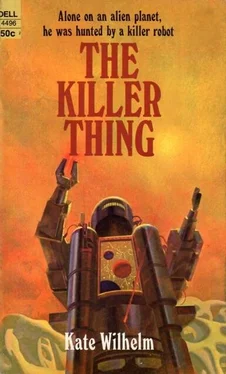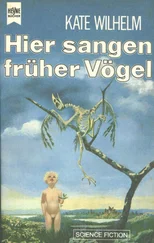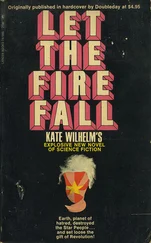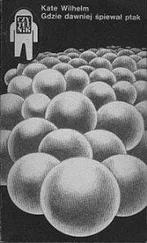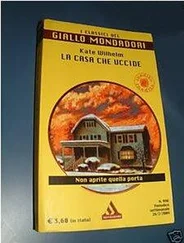Whatever he planned to do, he knew he had to do it that morning and afternoon. Time was running out on him, and there was the problem of the recurring fever attacks. But what difference if he did block it from the valley? It could only be temporary. Once it knew that he was in the valley, the robot could get in. His pitiful barricade would bar it no more than a wall of loosely stacked children’s blocks would bar an adult from a room. He slumped to the ground again and looked out at the world beyond his valley. The sun was nearly overhead already, but would not reach into the passage for half an hour or longer, would not shine directly into it longer than another half-hour before the other wall provided shade again. He could remain in it working… “For what?” His voice was a croak, hoarse from dryness, from screaming in the night hours. His throat rasped and hurt when he spoke. There had been the slight chance that he might find the other dinghy in the five or six days that he had gained by returning to this end of the mountains. The gamble had been lost. The robot was able to control the screen from a distance. He knew he could not enter the dinghy as long as the screen was effective. If he could trap the robot, force it to turn off the screen… He laughed wildly. The laughter stopped abruptly and he stared again at the passage. Had this been what he had worked for all along without realising it? He could build a trap, a trap using what he had: wind, sand, rock, and the natural pitch of the passage…
From where he was at the outer end of the passage he could not see past the turn; from here it appeared that the floor of the passage itself sloped fairly evenly, a little steep, but not dangerously so, until there was a sudden dropping away of the floor over a twenty-foot stretch immediately before the twist in the passage. Seeing the change in grade he could brace for it, be prepared for it… If it were concealed under loose sand, it would make a trap. The passage was heavily strewn with rock and boulders, both above and below the turn. If the robot were mired in sand there, it might be possible to bombard it with the rocks. It might be damaged by the sand itself, lose its balance and be unable to rise again.
If it got that close to him, he had to have something ready for it, something to slow it down. Otherwise it would enter the valley and kill him and the whole flight and fight would have been for nothing, only a delay of the inevitable. Trace knew he could not give up after fighting so hard. He started to build another wall of rocks.
He brought rocks from the valley floor and one by one hauled them up the passageway and laid them down until he had enough to start piling them. The barrier would have to be four feet high where it was hidden from the outside by the turn. When the wind blew the sand, it would dump it over the fence on the other side, where, hopefully, it would be levelled out and give the impression of being the floor itself. The passage was three hundred feet long and contained many tons of loose rocks and boulders, many more tons of sand. The hours passed; the sun blazed down into the narrow cut between the massive cliffs, and then started to descend, leaving the cut to deep shadow.
Trace worked deliberately, not thinking about the work he was doing, not thinking about the agony of his body as he lifted rocks, staggered with them up the passage and dropped them by the growing wall. He didn’t ask himself why he didn’t use the rocks nearer at hand, why he returned the two hundred and forty feet to the valley floor for his supply each time. The world swam in a red haze before his eyes and he did not find it strange. There were murmurs in his ears, words, phrases, snatches of song and music, and he did not find them incongruent. Somewhere between the valley and the turn in the passage he began speaking; when he opened his mouth to utter the words, one of the cracks started to bleed and the trickle of blood oozed from his lip, rolled crookedly down his chin and out of sight down his neck.
“You can’t count on the men being able to kill unless they are taught to kill. An early figure given was on the order of sixty per cent who never fired directly at the enemy… The enemy is always the objective, never a man, or a group of men, or a town of people. It’s a platoon, or the target, or the objective. You can shoot anything at an objective. An objective doesn’t die, it is merely met and taken. You don’t hate the enemy, men. You can’t afford to hate the enemy because hatred involves the emotions and a man with emotions driving him is not a man to be trusted in war. You all measured up; those who didn’t measure up were mustered out of the army.”
He heard the words as if from a great distance, unaware that he was saying them. How do I know they all measured up? he asked, questioning the voice that seemed so unrelated to him.
Because they’ve all been to Tarbo.
He dropped a rock and stood still for a long time, and he was not seeing the glaring red world of rocks and desert, but the soft misty forests of Tarbo, and he saw all of it. That was where they were sorted. Those who could and did kill from those who couldn’t or didn’t. Some were assigned to the Fleet. Some of them never left Tarbo. He saw again the smoking revolver in Brunce’s hand, saw the spreading blood on Gene Connor’s shoulder, in the back. Fishing in stocked waters, Gene had said. He had guessed. Those who knew the truth about Tarbo didn’t leave it.
A gust of wind drove a handful of sand against Trace’s face mask and he jerked. He shook his head hard and pulled away from the wall of the passage that was supporting him. He didn’t know how long he had been leaning against it. He could see into the valley; it was striped black and white with phantom sand figures rising, swirling, falling. Without looking at the wall he had been building, he left the passage and crossed the valley floor, his head bowed against the driving sand and wind, his shoulders slumped in defeat. He knew the heat and wind and sand were beating him after all. He didn’t care any longer. Inside his dinghy he pulled off his suit and fell down on the seat-bed. There was no water. He could not even take any more of the anti-fever capsules. He could only wait, and hope for sleep.
You’re army, Trace. Forget her.
“Shut up, Duncan! I wanted you to stay with me and you wouldn’t, now just shut up!”
We need the reinforcement of others of our own kind, trained men as we have been trained, murderers, just as we are murderers. Or else we might start to think. Can’t have that, old man. Just do, never think. Who said that? His father? He stared wildly about the dinghy. What was his father doing in it? He hadn’t seen him since… when? He didn’t know. Seventh birthday? Sixth? A convenience, dear, that’s all.
They were gone. He turned to the other seat-bed and said in his croaking voice, “I tried to save you, Duncan, you know that.”
But only because you were afraid to be alone, Trace. Afraid to think…
“You went there too, Duncan. We all did. Part of the training. We weren’t responsible for it…”
Sure, Trace. Sure. Forget it. Forget her. Not human, even. You know what they’re good for.
There was no let-up. His body twitched now and then and the only sounds that he made were groans and indecipherable mutterings, but there was no quiet. The winds howled through the valley and he didn’t hear them.
On the other side of the valley the wind hurled tons of sand through the passageway. Much of it was blown straight through, high over the meagre wall of stone. Some of it was caught by the wall, and in turn served as a trap for more of the sand. A mound of it grew. When the wind passed its most furious peak and gentled again, the top of the mound was levelled. The black still night settled over the planet, but there was no quiet in the dinghy until exhaustion dragged Trace from the clamouring voices, shutting them out finally so he could sleep. It was dawn, and in the dawn the winds returned. Sand was added to the accumulation in the passage, mounded again, this time ten feet high, and then levelled once more, and the new level was only seven feet, flush with the ground beyond the passage at the far end of it, the end through which the robot would try to gain entry.
Читать дальше
